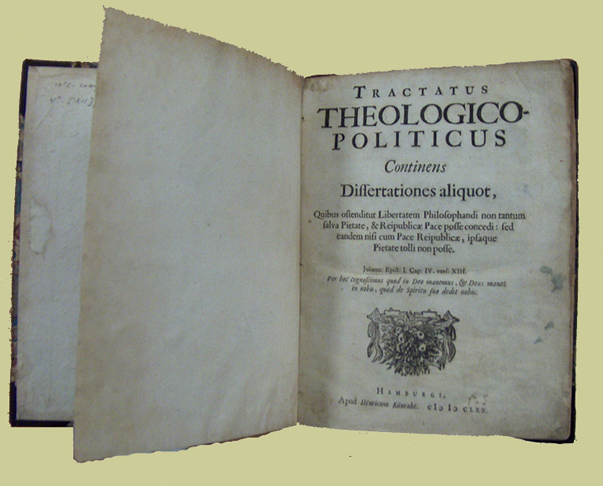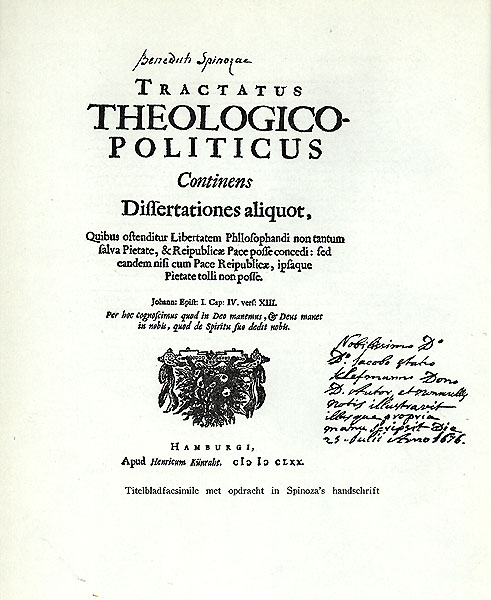
Theological Political Treatise
Benedict de Spinoza
1669

Ch3: Of the Vocation of the Hebrews, and Whether the Gift of Prophecy Was Peculiar to Them
Ch 7: Of the Interpretation of Scripture
Ch 8: Of the Authorship of the Pentateuch and the Other Historical Roots of the Old Testament
Ch 9: Other Questions Concerning the Same Books: Namely Whether They Were Completely Finished by Ezra, and, Further, Whether the Marginal Notes Which Are Found in the Hebrew Texts Were Various Readings
Ch 10: An Examination of the Remaining Books of the Old Testament According to the Preceding Method
Ch 17: It is Shown that No One Can, or Need Transfer All His Rights to the Sovereign Power. Of the Hebrew Republic, As It Was During the Lifetime of Moses, and After His Death, Till the Foundation of the Monarchy; and Of Its Excellence. Lastly. Of the Causes Why the Theocratic Republic Fell, and Why It Could Hardly Have Continued Without Dissension.
Ch18: From the Commonwealth of the Hebrews, and Their History, Certain Political Doctrines are Deduced
Ch 20: That in a Free State Every Man May Think What He Likes, and Say What He Thinks

Denounced by the (Calvinist) Church Council of
Amsterdam as a "work forged in Hell by a renegade Jew and the Devil and issued
with the knowledge of Mynheer Jan de
Witt."